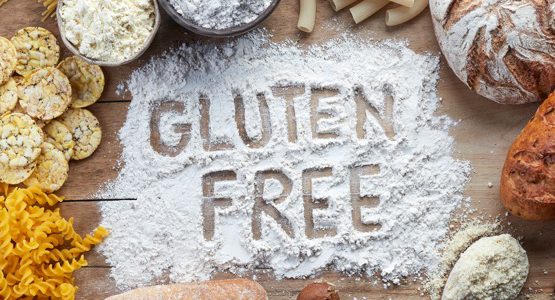Prescriptions for Gluten-free junk?

If you’ve been diagnosed Coeliac, your GP may offer you ‘prescriptions’ for gluten-free foods. This may seem at first a bit of a perk, a small compensation for the huge dietary inconvenience that looms ahead of you. But if consumption of such foods raises your risk of type 2 Diabetes, what on earth is going on?
If your GP is in the business of ‘prescribing’ gluten-free foods, does that mean the NHS sees them as medication? If they were going to be good for you – nutritionally speaking – I would not be debating this. But processed carbohydrate foods, laden with added sugar and unpronounceable additives (read those labels!), may be using ‘alternatives’ to wheat, but they are no better for you than their gluten-filled relatives. I’m afraid they still exist in the category of junk-food, and yet, if GPs are prescribing them, does that not appear to endorse them as ‘healthy’?
Hannah Furness of The Telegraph quite rightly brings the issue to our attention, as 211,200 prescriptions in one year for Gluten-free cakes and biscuits, at a cost of £27 million is hardly a good use of public money, see: http://bit.ly/1PFD3e3
Doctors need to be aware that managing Coeliac Disease is not just about gluten avoidance. Good management involves a diet that promotes healing of the gut lining (yes, certain foods will promote this). Certain foods, medications and lifestyles exacerbate and even cause damage to the gut lining, where other foods and lifestyles support the health of the gut lining. Importantly, restoration of the fine villi (hair-like projections) on the surface of the intestinal tissue, (damaged by Coeliac Disease), will help restore the output of digestive enzymes, needed to break down foods and release their important nutrients for absorption.
Patients also need to be educated on the perils of accidental/inadvertent contamination of foods with gluten, in kitchens where the same cutting surface is used for both wheat bread, AND GF bread. People with Non-coeliac gluten sensitivity can usually tolerate trace amounts of gluten, but for many Coeliac sufferers, symptoms can be triggered by ingesting the tiniest crumb, or molecule lurking in a shop-bought sauce or ready-meal.
Cross-reacting proteins in an individual’s diet also need ruling out, because if this issue muddies the waters, cross-reacting foods can actually perpetuate the same immune response triggered by gluten. Which may explain why so many Coeliac patients continue to suffer debilitating symptoms despite strict adherence to a GF diet.
‘Choose foods which are naturally gluten-free’
People with Coeliac Disease can actually enjoy a very healthy, varied diet. It will involve avoidance of many processed, ‘manufactured’ foods and condiments, and resemble the sort of natural diet our grandparents enjoyed, when most meals were cooked from scratch. But this does NOT have to be labour intensive or time consuming. A simple diet focusing on meat, fish, eggs, green leafy vegetables, rice and a few starchy root veg’ like sweet potatoes, with nuts, seeds and occasionally fruit, is all naturally gluten-free.
Cooking from scratch means no scrutinising the back of packaging looking for gluten the imposter, posing as ‘modified starch’, and this style of eating is satiating, keeps blood sugar levels naturally balanced and above all is health-giving. Avoiding processed, sugar-laden junk foods will remove that lethargic, bloated feeling that goes hand-in-hand with the typical western diet.
So when your GP offers you a prescription for Gluten-free foods, ask – ‘will these foods help heal my gut?’
